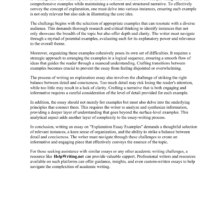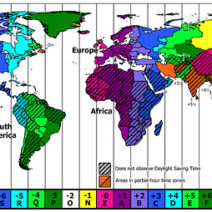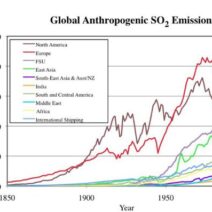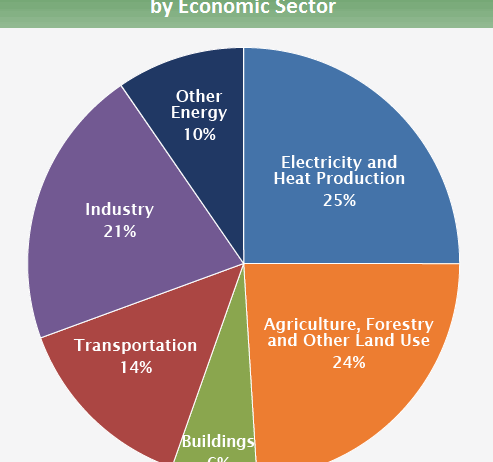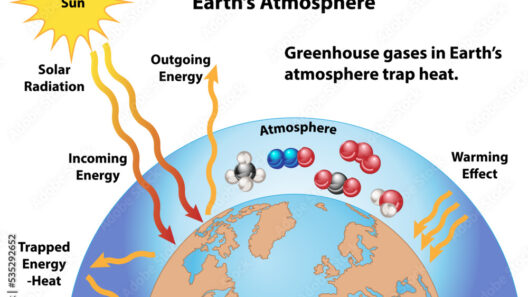The United States, often regarded as a titan on the world stage, holds a unique position in the intricate tapestry of global warming. Our contribution to climate change is both substantial and multifaceted, resembling a double-edged sword that impacts not only our nation but reverberates throughout the entire planet. When discussing the role of the U.S. in this global crisis, it is crucial to understand the various dimensions of our involvement in climate change and the implications that arise from it. This analysis serves not merely as an examination of numbers but as a clarion call to recognize our responsibilities and potential for transformative action.
Firstly, one must comprehend the scale of the U.S.’s greenhouse gas emissions. Despite a growing awareness and movement toward sustainability, the nation remains one of the largest contributors to carbon dioxide (CO2) emissions globally. These emissions stem from various sectors including transportation, electricity generation, industry, and agriculture. Each sector operates like a distinct cog in a vast clock, contributing hours to the encroaching catastrophe that is climate change. The transportation sector, for instance, frequently casts a significant shadow, accounting for nearly 29% of total emissions. Vehicles powered by fossil fuels whisk people across vast distances, often with little regard for their environmental footprint. It is essential to note that this is not merely a fossil fuel crisis but a representation of lifestyle choices and infrastructural designs deeply ingrained in the fabric of American life.
Electricity generation is another expansive frontier contributing to our nation’s emissions. Historically dominated by coal and natural gas, the transition to renewable energy sources is paramount. The energy landscape in the U.S. has been evolving, showcasing a burgeoning shift toward solar and wind innovations. However, the vestiges of fossil fuel reliance remain clinging like vines in a dense forest, inhibiting the full potential of our energy transition. The rapid deployment of renewable options is a critical juncture, not only for domestic conservation but as a beacon of hope for international peers grappling with similar challenges.
Subsequently, industrial practices and agricultural methodologies further amplify our carbon footprint. Industries connected to manufacturing and production constitute a significant proportion of greenhouse gas emissions through both direct and indirect means. Inefficiencies and outdated practices can trap pollutants within our atmosphere, accumulating like hidden debts in a credit report. Conversely, agriculture, often perceived as pastoral and serene, is rife with emissions from livestock—specifically methane—which surpasses the CO2 output in certain measures. This reality paints a complex picture whereby our quests for sustenance also contribute to environmental degradation.
Socially and economically, the dichotomy of privilege and irresponsibility manifests starkly in the U.S. and its relationship with climate change. The affluent fossil fuel industries often perform a delicate ballet of lobbying against progressive environmental policies, spearheading efforts that impede substantial legislative traction. Collectively, such efforts cultivate an ecosystem resistant to change, whereby the challenges faced tend to explode within marginalized communities disproportionately affected by climate change. This environmental injustice is tantamount to a cruel riddle, with the most affected often lacking the resources to combat or adapt to these shifting realities.
Furthermore, the psychological implications of climate change introduce an urgent aspect of the conversation. The ‘climate anxiety’ phenomenon has burgeoned, especially among younger generations who are acutely aware of the dire circumstances foisted upon them. It’s a heavy burden, likened to holding the weight of an anvil while navigating a tightrope—a tightrope that bridges the aspirations for human advancement and the devastation wrought by environmental negligence. Fostering mental resilience in the face of climate-related dread is not merely an act of self-care but a communal responsibility. We must cultivate a mindset focused on proactive and constructive action rather than passive defeatism.
Education and advocacy play pivotal roles in transforming societal perspectives concerning climate change. Awareness functions as the first step to igniting change, fostering a collective understanding of our interconnectedness with the environment. Educational institutions bear a weighty responsibility to illuminate the paths leading toward actionable solutions. Simultaneously, grassroots movements and environmental organizations quietly orchestrate a symphony of voices dedicated to pushing the envelope, advocating for policies aligned with sustainable and equitable futures. The resounding impact of these initiatives echoes through communities, inspiring individuals to rethink consumption patterns and engage in conservation efforts.
For such transformation to burgeon, global collaboration is indispensable. As a prominent player in the international arena, the U.S. has the capacity to lead—more than just a promise, it is an obligation. Embracing the Paris Agreement and other worldwide ventures sends an unequivocal message: we are committed to turning the tide against climate change. The shared goal of limiting global temperature rise to below 2 degrees Celsius must remain a guiding principle. Moreover, technological innovations must be shared and democratized, illuminating paths forward for less developed nations while recognizing that every challenge presents an opportunity for growth.
In conclusion, the U.S. role in the climate change narrative is a multifaceted one, interwoven with both challenges and chances for renewal. The profound implications of climate change necessitate an urgent recalibration of our collective mindset, prompting a dedication toward sustainable futures. The intricacies of our emissions are not mere figures; they represent a call to action and a chance to redefine our legacy—one paved with conscientious choices, advocacy, and an unwavering commitment to a healthier planet. As stewards of this Earth, we must rise to the occasion amidst a whirlwind of opportunity and threat, mindful of our unique capacity to effect global change.
